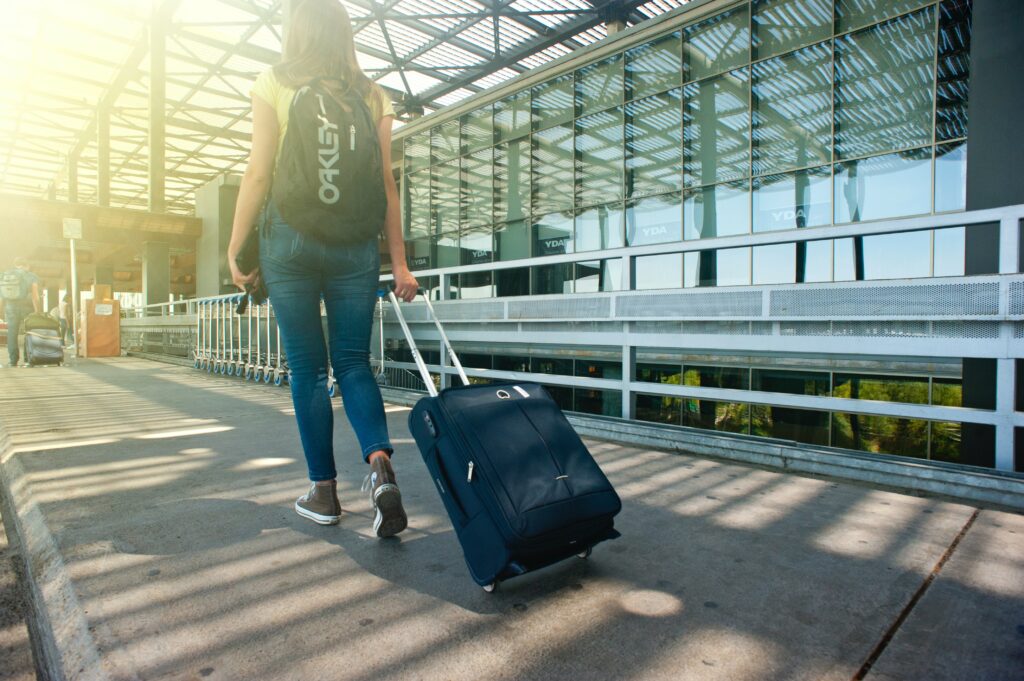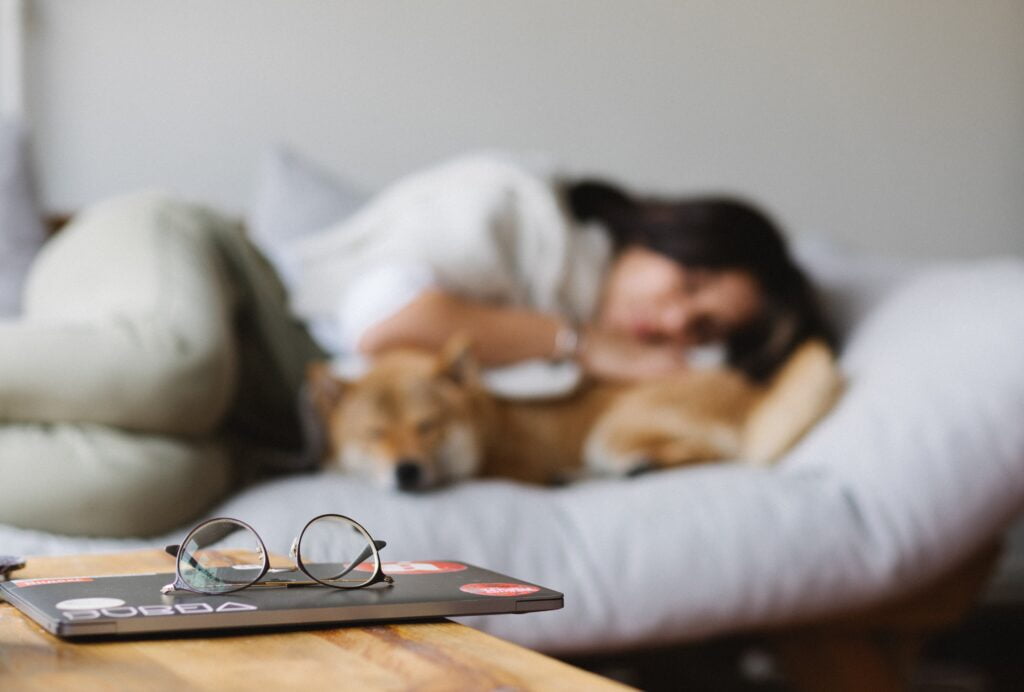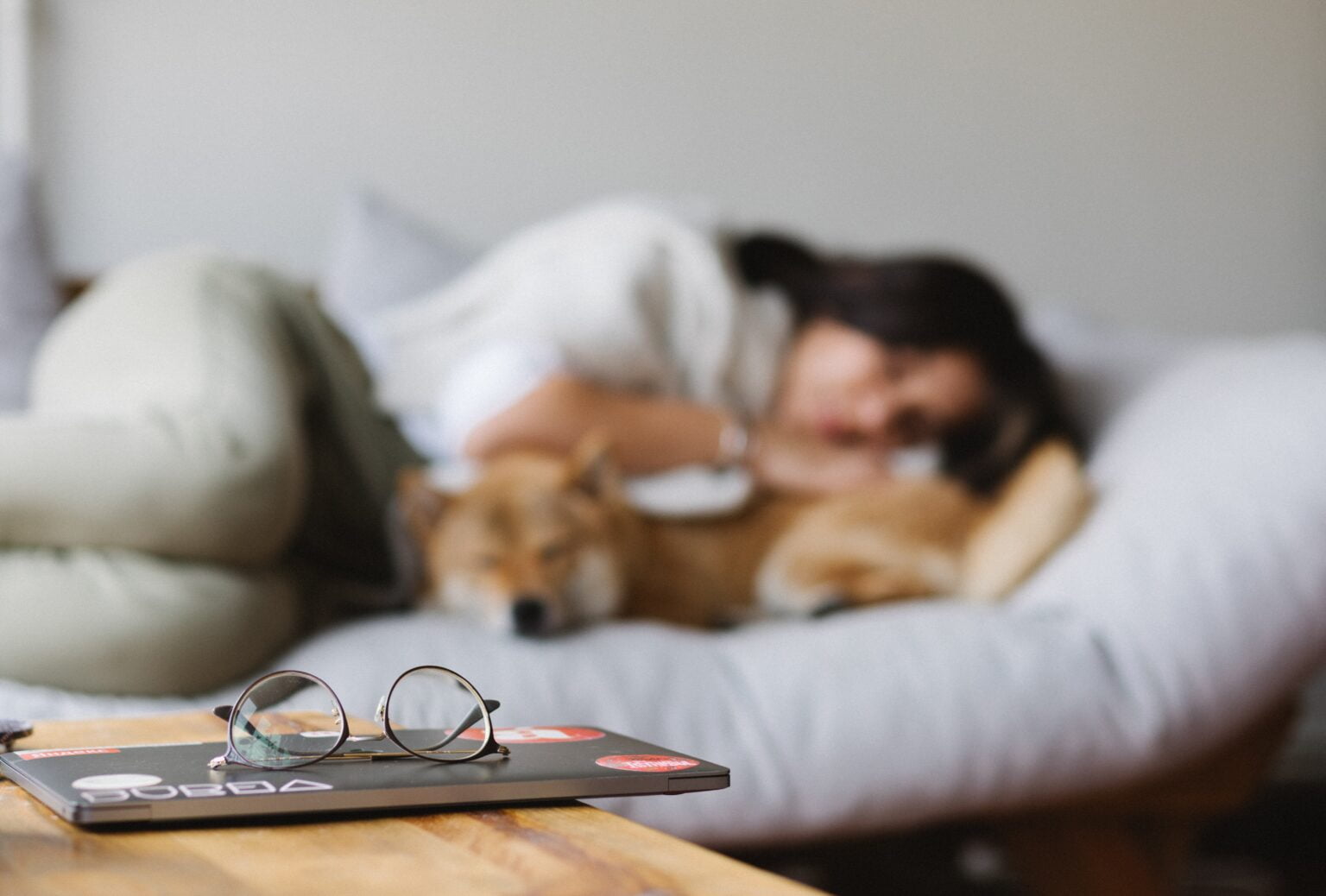Traveling is a wonderful experience, but it often comes with its challenges, and one of the most common is disrupted sleep. Whether you’re crossing time zones or adjusting to a new sleeping environment, getting a good night’s sleep while traveling can be elusive. But fear not! In this guide, we’ll explore ten tried-and-true tips and tricks on how to sleep better while traveling.

Plan Your Travel Schedule Wisely
Before embarking on your journey, consider your body’s internal clock and try to align your travel schedule with it. If possible, choose flights or transportation options that allow you to arrive at your destination during the evening, so you can go to bed at your regular bedtime.
Pack Comfort Essentials
Bringing comfort items from home can make a significant difference in your sleep quality. Consider packing a neck pillow, a cozy blanket, and noise-canceling headphones to create a more comfortable sleeping environment, whether you’re on a plane, train, or in a hotel room.
Stay Hydrated (But Not Too Much)
Proper hydration is essential for overall well-being, but be mindful of your fluid intake, especially close to bedtime. Overconsumption can lead to frequent trips to the restroom during the night. Strike a balance by staying hydrated throughout the day and cutting back a few hours before bedtime.
Choose the Right Accommodations
When booking your accommodations, prioritize comfort and convenience. Research hotels or lodging options that offer comfortable mattresses and blackout curtains. Consider staying in a quiet neighborhood or requesting a room away from noisy areas.
Create a Sleep-Friendly Environment
Upon arrival at your destination, take a few minutes to create a sleep-friendly environment. Dim the lights, close the curtains or blinds, and set the room temperature to your liking. These small adjustments can make a big difference in your sleep quality.
Stick to Your Routine
While traveling often disrupts our daily routines, try to maintain some consistency, especially with your bedtime rituals. If you have a bedtime routine at home, such as reading or listening to soothing music, continue these habits while traveling to signal to your body that it’s time to sleep.
Avoid Heavy Meals and Alcohol
Indulging in heavy or spicy meals, as well as excessive alcohol consumption, can interfere with your sleep. Opt for lighter meals, especially in the evening, and be mindful of alcohol intake. Both can disrupt your body’s sleep patterns.
Stay Active
Regular physical activity can help regulate your sleep patterns. Even while traveling, aim to incorporate some light exercise into your daily routine. A brisk walk or stretching exercises can go a long way toward promoting better sleep.
Limit Screen Time
The blue light emitted by smartphones, tablets, and laptops can interfere with your body’s production of melatonin, a hormone that regulates sleep. Try to limit screen time at least an hour before bedtime to help your body prepare for sleep.
Manage Jet Lag

Jet lag can be a formidable opponent when traveling across multiple time zones, but there are strategies you can employ to mitigate its impact and enjoy a more comfortable transition to your new location. Here’s a more detailed approach to managing jet lag:
1. Pre-Trip Preparation:
Begin your battle against jet lag before you even board the plane. Gradually adjust your sleep schedule a few days before your trip, aligning it with the time zone of your destination. This step helps your body start adapting to the upcoming time change, making the transition smoother.
2. Use Sleep Aids Sparingly:
While some travelers turn to sleep aids to combat jet lag, it’s essential to use them sparingly and with caution. Consult with a healthcare professional before taking any sleep medications, as they can have side effects and may not be suitable for everyone.
3. Adjust Your Watch:
As soon as you board the plane, set your watch or device to the time zone of your destination. This simple act can help you mentally transition and better align your activities with the local time.
4. Stay Active In-Flight:
During long flights, make an effort to move around and stretch periodically. Inactivity can lead to stiffness and discomfort, making it harder to adjust to your new time zone.
5. Spend Time Outdoors Upon Arrival:
Once you arrive at your destination, resist the temptation to take a nap, even if you’re feeling fatigued. Instead, spend time outdoors in natural light. Natural sunlight helps reset your internal clock and signals to your body that it’s time to be awake.
6. Gradual Adjustments:
Be patient with yourself. It may take a day or two for your body to fully adapt to the new time zone. During this adjustment period, focus on staying hydrated, eating well, and engaging in light physical activity.
7. Consider Melatonin Supplements:
Some travelers find melatonin supplements helpful in managing jet lag. Melatonin is a hormone that regulates sleep-wake cycles. Consult with a healthcare professional before using melatonin, and follow their recommended dosage.
8. Avoid Overcommitting:
Upon arrival, try not to overcommit to activities or appointments in the first day or two. Allow yourself some flexibility in your schedule so that you can rest or adjust as needed.
By following these comprehensive strategies, you can better prepare your body to conquer jet lag and make the most of your travels. Remember that everyone’s body is different, so it may take some experimentation to determine which methods work best for you. With a little planning and patience, you can minimize the effects of jet lag and enjoy a smoother transition to your destination’s time zone.
Frequently Asked Questions
How can I overcome jet lag?
Jet lag can be challenging, but adjusting your sleep schedule gradually before your trip and spending time in natural light upon arrival can help.
Is it okay to take sleep aids while traveling?
It is best to avoid using sleep aids unless a doctor has prescribed them. They can have side effects and may not be suitable for everyone.
What foods should I avoid before bedtime while traveling?
Avoid heavy or spicy meals and excessive alcohol consumption, as they can disrupt your sleep.
Can I use sleep masks and earplugs to improve sleep quality while traveling?
Yes, sleep masks and earplugs can be helpful in creating a more sleep-friendly environment and blocking out unwanted noise and light.
Should I stay on my home time zone while traveling?
Depending on your travel duration, you may want to adjust your schedule to align with your destination’s time zone to reduce jet lag.
Are there any natural remedies for better sleep while traveling?
Natural remedies like herbal teas (e.g., chamomile) and relaxation techniques (e.g., deep breathing) can promote better sleep while traveling.
Conclusion
Traveling should be an enjoyable and rejuvenating experience, and a good night’s sleep plays a crucial role in making it so. By following these ten tips and tricks, you can significantly improve your sleep quality while on the road. Remember to plan wisely, create a comfortable sleep environment, and prioritize self-care to ensure that your travels are not only adventurous but also restful.







